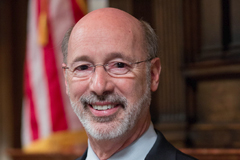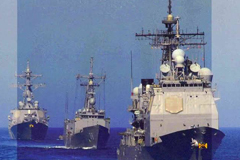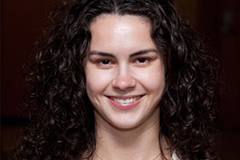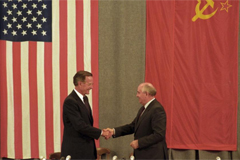News + Media
 |
Analysis + OpinionDecember 10, 2014The new industrial espionageJoel BrennerThe American InterestThe information revolution has rendered obsolete the legacy legal regime on intellectual property rights, enabling spying for commercial purposes to morph into a strategic issue. |
 |
News@E40November 6, 2014MIT alumnus elected Governor of PennsylvaniaTom Wolf, an alumnus of the MIT Department of Political Science, has been elected governor of Pennsylvania. He came to MIT in 1974 after studying Indian history in London and serving three years in the Peace Corps in Orissa. At MIT, he was a student of Walter Dean Burnham in American political history and Myron Weiner in political demography. His doctoral dissertation won the E.E. Schattschneider Prize of the American Political Science Association for the best doctoral dissertation in the field of American politics. Notwithstanding his very promising prospects as an academic, governor-elect Wolf chose to return to his hometown and expand the family business. From that base, he became one of southeastern Pennsylvania's most philanthropic business leaders. He has served on the department's visiting committee and is a charter member of the CIS advisory board. CIS director, Richard Samuels, was his classmate in the political science PhD program, and celebrated governor elect Wolf's victory with their friends and families in York, Pennsylvania. Samuels remarked, "The citizens of Pennsylvania have made a splendid choice. They are fortunate to have so bright and dedicated a leader." |
 |
précisNovember 1, 2014End NotesEnd Notes features the professional achievements of our scholars, students, and staff. This includes recent awards, speaking engagements, and publications. |
 |
précisNovember 1, 2014précis Interview: Frank Gavin, Frank Stanton Chair in nuclear security policy studies and professor of political science at MITFrank Gavin, Frank Stanton Chair in Nuclear Security Policy Studies and professor of political science at MIT, discusses his interest in diplomatic history, nuclear studies at MIT, as well as upcoming projects. He also describes goals and challenges of bridging the gap between students of political science and policymakers. |
 |
précisNovember 1, 2014A sustained debateBy Barry PosenPolitically, the United States must do less. It must focus on the most important dangers to its security. The greatest danger to U.S. sovereignty is a hegemon on the Eurasian land mass. This danger is low now, but the United States must always be prepared to counter it should it reemerge. If such a challenge does reemerge, however, the United States ought not manage it like it did the Cold War, shouldering the bulk of the burden, because the U.S. relative power position is unlikely to be as favorable. The United States will need real allies, not the security dependencies it has now. |
 |
précisNovember 1, 2014Exploiting US control of the commons in a US–China conflictBy Fiona Stephanie CunninghamChina's investments in military technology designed to keep great power militaries out of its maritime periphery are viewed with increasing concern by the U.S. foreign policy community. How can the United States maintain its freedom of action in the Western Pacific while minimizing the risk of escalation with China? |
 |
précisNovember 1, 2014BriefingsThe Center hosted a Starr Forum "Whither U.S. Grand Strategy?" on October 9, Jacqueline Hazelton and Barry Posen were among the panelists; Louisa Reynolds, an independent journalist based in Guatemala City, Guatemala, has been selected as the 2014–15 IWMF Elizabeth Neuffer Fellow; 3 Questions: Calestous Juma on african development; Joel Brenner, former inspector general and senior counsel at the NSA, has joined CIS as a 2014–2015 Robert E. Wilhelm Fellow; JoAnn Carmin, an associate professor of environmental policy and planning at MIT, died on Tuesday after an extended illness; 3 Questions: Kenneth Oye on the regulation of genetic engineering. |
 |
précisNovember 1, 2014ActivitiesHigh-ranking African leaders in science, technology and innovation gathered at MIT on September 23 and 24 to explore areas for mutual cooperation; The Center welcomed Mohamed ElBaradei on December 8 for an off-the-record conversation about Egypt and the Middle East; Tom Wolf, an alumnus of the MIT Department of Political Science, has been elected governor of Pennsylvania; Malachy Sumaila shared his experiences with Boko Haram from the perspective of his university, community and family; The Emile Bustani Middle East Seminar hosted two talks; MISTI presents three types of awards to outstanding students who embody the mission and spirit of MISTI. |
 |
In the NewsOctober 29, 2014Put it in writingJoshua R. Itzkowitz ShifrinsonForeign AffairsDuring negotiations over German reunification in 1990, did the United States promise the Soviet Union that NATO would not expand into eastern Europe? The answer remains subject to heated debate. |
 |
Analysis + OpinionOctober 24, 2014Nations everywhere are exploiting the lack of cybersecurityJoel BrennerWashington PostUS military and security officials can blow things up with a keyboard and a mouse. They’ve done it. Some even say they were behind the Stuxnet cyberattack that destroyed thousands of centrifuges in an Iranian nuclear enrichment facility. |

